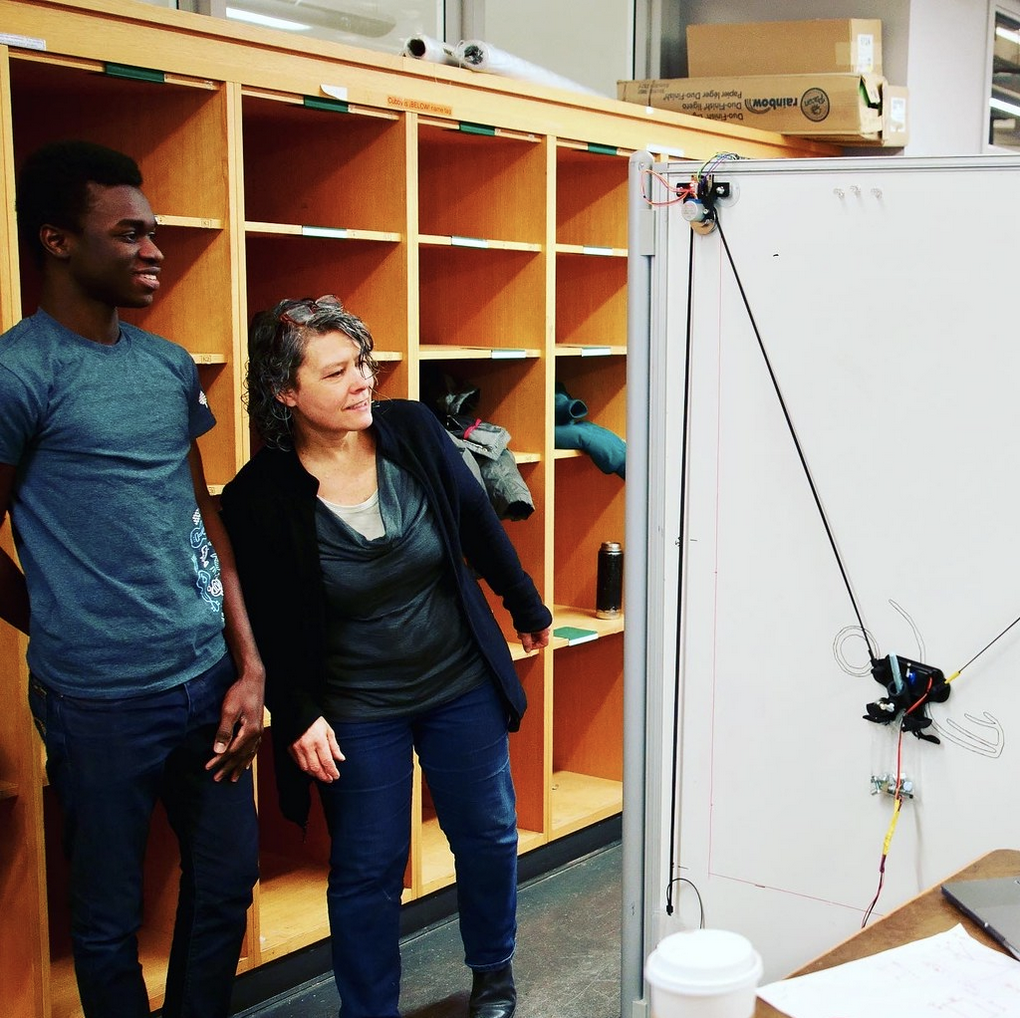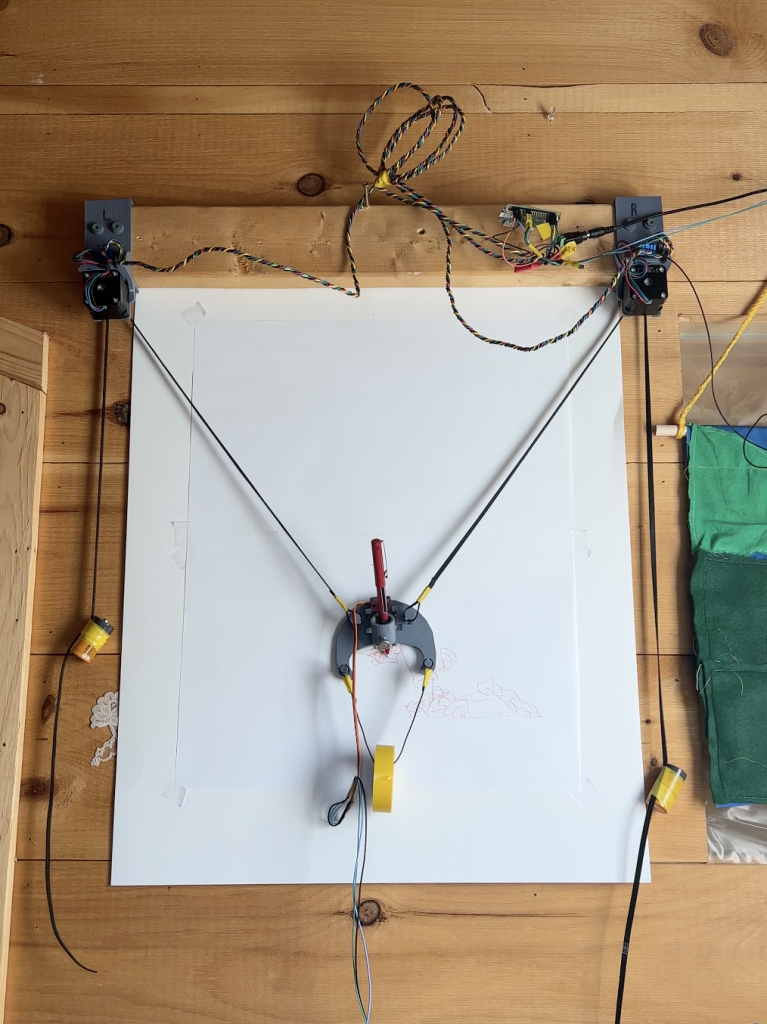I’m revisiting and polishing the “ink refill routine” capability, and I rewrote the ligature algorithm for cursive handwriting. This is mostly just a test but it shows promise.
Protected: Live Drawing
Gondola PlottyBot
Before there was PlottyBot, I had designed and built a Gondola Plotter.
The software stack was meant for teaching, the parts meant to be cheap. It served that purpose and then I got engrossed in the tabletop plotter that became PlottyBot. In the back of my mind, I knew I’d circle back to the gondola plotter and bake in it all the lessons I learned, and port the PlottyBot software stack to it. Well, it’s now done, and I have great plans for it. For now I deployed it on a small wall for stress testing it and making sure it’s ready for prime time. I parameterized the PlottyBot software stack so that it can either run the tabletop or the gondola plotter. Live remote drawing, super complex plots, handwriting, it’s all there.
Through the iterations, I’ve managed to make it very accurate for a gondola plotter. One thing I make a point to do in the design, is open up the pen end so as to be able to watch the sweet drawing action.
And since I’m catching up on plotter related matters, I guest speaker’d in Robin’s classroom to talk about X,Y coordinates. It was super fun and of course, the end goal was to get kids to drive the plotter. Most kids were curious in seeing the machine draw, few were enthralled. I loved having the chance to trigger some sparks in their brains. We did some other fun things around Cartesian coordinate systems.

I’ve been asked to do it again this year. I’d love to, and I’ll have one more plotter in my arsenal.



